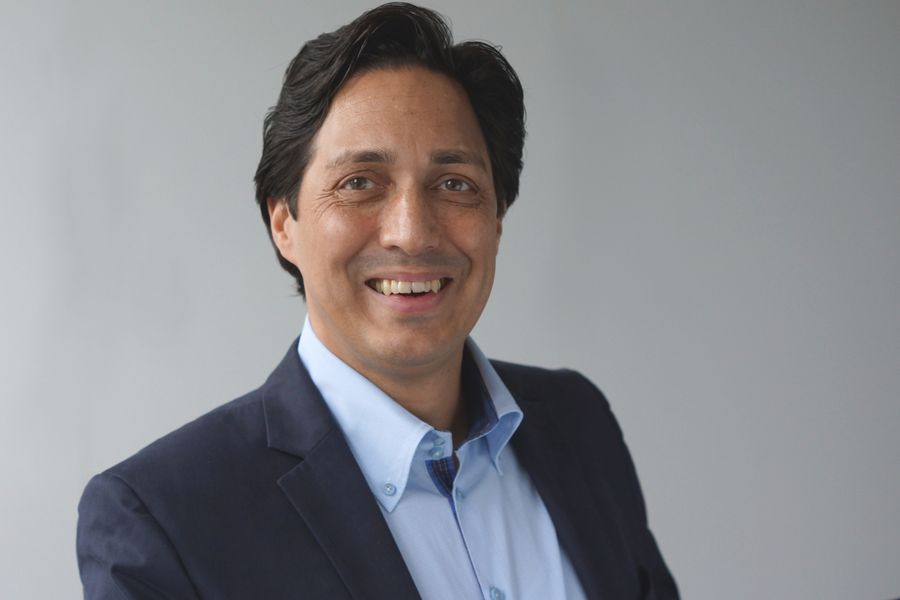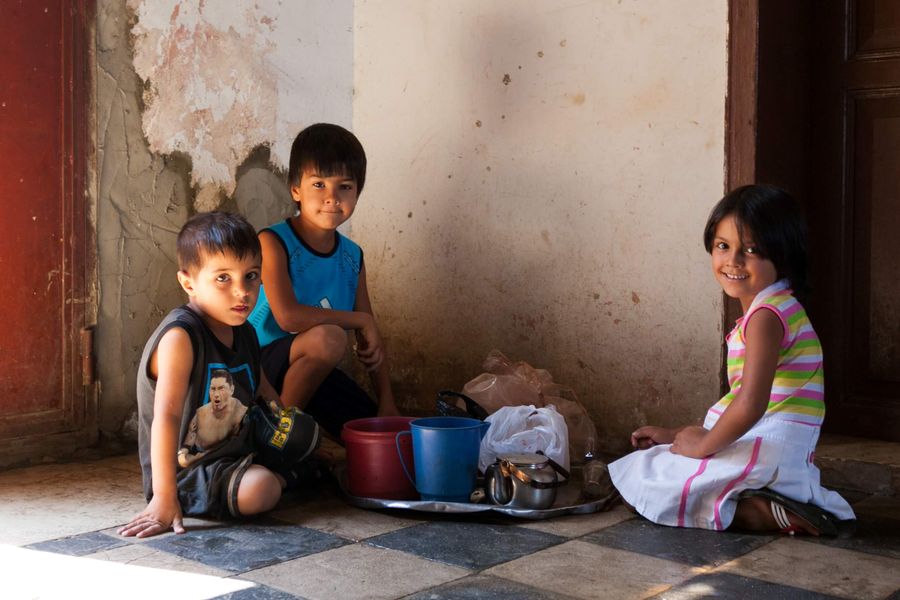Bringing religion’s message of peace more strongly into play
The role of faith-based organizations in humanitarian aid

The Sovereign Order of Malta convened a symposium in Geneva entitled “Religions together for humanitarian Action” in late May. Intended as a preparation for the World Humanitarian Summit – a UN initiative to invite the discussion of improvements in the field of humanitarian aid – representatives from several religions and humanitarian organizations tackled pressing issues within the field of religion in a humanitarian context. We asked Sid Johann Peruvemba, Program Director and Vice-Secretary General of Malteser International for his take on why this is a highly relevant topic for the times.
“The World Humanitarian Summit, which will take place in May 2016 in Istanbul, was brought to life by Ban Ki-moon – the UN Secretary General – in order to initiate improvements in the field of humanitarian aid. What was the trigger for this?”
We have seen the number of conflicts in the world – and therefore the number of people who are in need of humanitarian aid – rise dramatically in recent years. Worldwide, around 180 million people suffer from the effects of violent conflict. This figure is the highest we have seen since the end of the Second World War and the level of need is enormous. According to the latest figures, around 80 million people depend on humanitarian aid for their very lives. It is a tragic truth that the lives of many millions are going to be placed in danger in the coming ten to fifteen years by the effects of armed violence. We have to be prepared for that.
For over 900 years, the Order of Malta and its relief agencies have been caring for people who are suffering because of conflict – so we welcomed the initiative from the Secretary General Ban Ki-moon to convene the World Humanitarian Summit and advance discussion and build networks in the humanitarian aid field.

“You spoke about the history and background of the Order of Malta. What is different about aid organizations with a religious background?”
On the one hand – that is, the professional and technical level – the differences between organizations with and without a religious background are not readily apparent, indeed, they are quite scarce. We all work according to the same quality standards and the specifications of our donors such as the UN or the EU and our technical staff have the same sound training. The humanitarian principles of impartiality and independence are the foundations of our work.
Malteser International is able to deliver effective and sustainable help to Syrian refugees in Lebanon thanks to local church structures and the Order of Malta.Malteser International is able to deliver effective and sustainable help to Syrian refugees in Lebanon thanks to local church structures and the Order of Malta.
I am convinced, however, that organizations with a religious background stand out from secular ones despite the professional similarities: through their power to persuade, their unique motivation, the scope of their reach and their staying power. Helping the poor and needy is anchored deeply in religious teaching – and the Order of Malta has taken this challenge in earnest for over 900 years. I am certain that these strengths manifest themselves in our operations. For us at Malteser International, it is important never to lose the individual person – with all of their needs and troubles – from our sight. In crises, we do not just deliver material: we take care of the health of people in body and soul. Our work following the recent earthquake in Nepal is an excellent example of this. Of course, we distributed urgently needed food, household, and hygiene material, and took care of medical support for the survivors. However, in the days following the disaster, one of our emergency physicians was also able to speak with and support many highly traumatized people.
On top of this comes the fact that religious organizations have a different approach to conflict regions – and enjoy the trust of the local population. This is an important factor, and it helps them to deliver fast and effective aid to populations in need during crises.

“What can and must aid organisations with a religious background do from their side to help people in conflict situations and cases of need better?”
Malteser International provides aid to tens of thousands of people forced to flee their homes by the advance of ISIS in Syria and Iraq. They should use these strengths, and bring them even more strongly into play. In armed conflicts, they may have the advantage of being able to engage in dialogue and to offer the opportunity of reconciliation to the parties involved. To take advantage of these strengths, we need to step up our interreligious dialogue and intensify cooperation with one another. This is something that cannot be done from one day to the next, and it requires a shared will and idea. The World Humanitarian Summit is an excellent opportunity to set this process in motion.
“Many conflicts in the world today have a religious element – or they use religious differences at least as a pretext for armed violence. What answer do you give to people who make the argument that what the word right needs now is less religion? ”
I would say to them that they have made an oversimplification. It is definitely true that wars have been waged in the name of religion for thousands of years. Groups which carry out atrocities around the world: like ISIS, al-Shabaab, Boko Haram, and the Lord’s Resistance Army to name just a few all seek to justify their cause with their religious convictions. If we look at the last century, however, we can see more than enough examples of massacres and atrocities that did not need God as their justification.
My opinion on the subject is that violent conflict is much too complex a phenomenon to try to point out any one trigger. In many cases, religion is used merely to legitimize conflicts that are caused by much more worldly interests: territorial disputes, power and money. Religion is therefore a force for violence only when it is divorced from its doctrinal and moral content and its structures are hijacked as a means to power. I wish to neither trivialize, nor make an apology for the religious element that can be seen in many conflicts, but I think the answer to the initial question of whether we need less religion in the world has to be: on the contrary, we need more of it. And that must mean more social tolerance, more reconciliation and forgiveness, an increasing dedication to serving people and a radical challenge to each and every individual to put themselves at the service of peace.
(Interview: Elena Stein/Conor Heathcote, May 2015)








